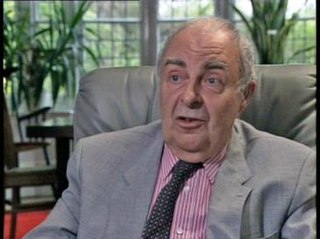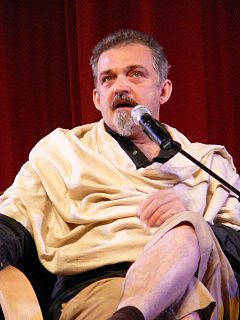A Quote by Lee Child
I have the "thing" worked out - the trick or the surprise or the pivotal fact. Then I just start somewhere and let the story work itself out.
Related Quotes
Well, the first thing we do is take our brain out and put it in a drawer. Stick it somewhere and let it tantrum until it wears itself out. You may still hear the brain and all the shitty things it is saying to you, but it will be muffled, and just the fact that it is not in your head anymore will make things seem clearer. And then you just do it.
I think the trick of being a writer is to basically put your cards out there all the time and be willing to be as in the dark about what happens next as your reader would be at that time. And then you can really surprise yourself. There's that cliche, "No surprise for the writer, no surprise for the reader!"
To me, all creativity is magic. Ideas start out in the empty void of your head - and they end up as a material thing, like a book you can hold in your hand. That is the magical process. It's an alchemical thing. Yes, we do get the gold out of it but that's not the most important thing. It's the work itself.
I work just as much as I always worked. And I can't explain the fact that there have been a series of books coming rather regularly out of me. I work most days and if you work most days and you get at least a page done a day, then at the end of the year you have 365. So the pages accumulate and then I publish the books.
It can take years. With the first draft, I just write everything. With the second draft, it becomes so depressing for me, because I realize that I was fooled into thinking I'd written the story. I hadn't-I had just typed for a long time. So then I have to carve out a story from the 25 or so pages. It's in there somewhere-but I have to find it. I'll then write a third, fourth, and fifth draft, and so on.
Usually the beginning of a story that people hear a lot. For example, "My girlfriend is upset about her new haircut" or "My dad keeps losing his car keys." And then I just think of different ways the story could end. "My girlfriend is upset about her new haircut. I don't understand why she's crying. I'm the one who has to get a new girlfriend." Then I try it out on stage. I don't do a lot of re-writing. My jokes either work or they don't. The trick is just to write a ton of jokes.
There are two aspects to making movies: One is the feeling of wanting to push myself into stuff that I don't know how to do. Then there's the other impulse to try and earn a living. I want to be careful about not confusing those too much - not that those things can't have a healthy overlap. Plenty of people start out making work that isn't terribly commercial, and then make work that's more commercial but still good. You just want to watch out for that thing where you tell yourself that you're doing your best work when you're not.
Writing a story starts out as a puzzle in your mind, of "What is it I'm fantasizing about right now that makes me think this is going to be worth years of work?" And you just keep pushing and trying to figure it out, and once you've hit on these resonances... Then as a screenwriter, it can be dangerous if you get too hooked on just finding things that resonate with each other, because then you risk getting into stuff that's too neat, and becomes stifled as storytelling. But you do feel like you're on the right track when you start to have a sense of what goes with what.




































